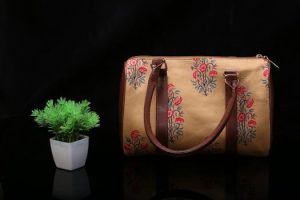Sustainable Style Education: Green Curricula in Fashion Schools
With the increasing concern for environmental impact and sustainable practices, the fashion industry has been under the spotlight for its use of harsh chemicals, pollution, and exploitation of natural resources. As a result, fashion schools around the world are recognizing the importance of integrating sustainability into their curricula. This shift towards sustainable style education is crucial as it not only helps create eco-conscious designers but also promotes a more responsible and ethical fashion industry. In this article, we will explore the concept of green curricula in fashion schools and its impact on the future of fashion.
The Importance of Sustainable Style Education
Sustainability in fashion refers to the use of environmentally-friendly materials, ethical production methods, and fair labor practices. As consumers become more aware of these issues, they are demanding sustainable alternatives from the fashion industry. This has put pressure on fashion schools to educate their students on sustainable practices, and prepare them for a career in the industry that is mindful of the planet and its resources.
By incorporating sustainability into their curricula, fashion schools can produce graduates who have a deeper understanding of the environmental and social impact of their designs. This, in turn, can lead to innovation in the industry and drive the demand for sustainable fashion. Sustainable style education not only benefits the planet but also creates a competitive edge for future fashion designers.
The Rise of Green Curricula in Fashion Schools
In recent years, there has been a significant increase in the number of fashion programs that have integrated sustainability into their curricula. This trend is not limited to fashion schools in environmentally conscious countries like Sweden and Australia, but also in the fashion capitals of New York, London, Paris, and Milan. Some schools, such as Central Saint Martins in London, have even introduced entire courses dedicated to sustainable design.
Additionally, fashion schools are collaborating with industry leaders and organizations, such as the Sustainable Apparel Coalition, to incorporate sustainability principles into their teaching. Students are also encouraged to participate in sustainable fashion competitions and challenges, giving them the opportunity to apply what they have learned in a real-world scenario.
The Components of Green Curricula
Green curricula in fashion schools are designed to educate students on all aspects of sustainability in the industry, including sustainable materials, supply chain management, and ethical practices. Courses may cover topics such as upcycling, zero-waste design, and the use of renewable energy in production. Students are also taught how to minimize the environmental impact of their designs, from the use of organic and natural materials to reducing waste through smart design and production techniques.
Moreover, green curricula also focus on the social aspects of sustainability, addressing issues such as fair labor practices and human rights violations in the fashion industry. Students learn about the importance of transparency and ethical sourcing of materials, as well as the impact of consumerism on garment workers in developing countries.
The Impact of Green Curricula on the Fashion Industry
The incorporation of sustainability into fashion school curricula has the potential to greatly influence the future of the fashion industry. By educating the next generation of designers on sustainable practices, fashion schools are contributing to a more responsible and ethical industry. This also creates a demand for sustainable materials and production methods, encouraging fashion brands to adopt more eco-friendly practices.
The impact of green curricula can also be seen in the growing number of sustainable fashion brands and their increasing presence in the market. As consumers become more conscious of their purchasing decisions, they are actively seeking out and supporting brands that prioritize sustainability. This change in consumer behavior is a direct result of the education and awareness raised by fashion schools through their green curricula.
In conclusion
Sustainable style education is a vital aspect of preparing future fashion designers to be responsible and mindful of their impact on the environment and society. Through green curricula in fashion schools, students are equipped with the knowledge and skills to drive the industry towards a more sustainable and ethical future. It is not just an educational trend, but a necessary step towards creating a more sustainable fashion industry.









